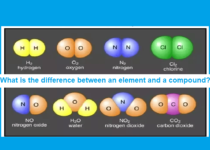During the secretory phase of the uterine cycle
The secretory phase of the uterine cycle is when the uterus, ovaries and breasts are preparing to release their products. The endometrium or lining of the uterus becomes thicker during this time in preparation for implantation with a fertilized egg.
Ovulation typically occurs at this point and estrogen levels peak as progesterone levels drop off. The secretory phase of the uterine cycle is a time when progesterone levels are increasing. This increase in progesterone is what causes many women to experience breast tenderness and nausea during this time.
The high level of estrogen being produced can also cause some symptoms such as bloating, irritability, mood swings and headaches. The secretory phase of the uterine cycle is a time when progesterone levels are high. This rise in progesterone causes an increase in cervical mucus production.
Which creates a perfect environment for sperm to thrive. During this phase, ovulation occurs and the egg moves down from the top of the uterus into its entrance, called the cervix. A woman may feel some discomfort as her body prepares for pregnancy.
Contents
What happens during the secretory phase of the uterine cycle?

The secretory phase of the uterine cycle is often considered to be a time when the uterus lining thickens. The progesterone that has been released during this time can cause many changes in the body. Such as weight gain and breast tenderness.
However, there are also some less noticeable changes that happen during this period. This post will discuss these changes and how they affect your body throughout this part of your menstrual cycle. The secretory phase of the uterine cycle is a time when your body prepares for pregnancy.
It begins on day 14 and lasts until just before ovulation on day 28. During this time, estrogen levels are high to help thicken the lining of your uterus in preparation for an embryo implantation and progesterone levels are low.
What does secretory phase mean?
The menstrual cycle is a delicate balance of hormones that determine whether you’ll have a period or not. For many women, the hormone progesterone dominates during this phase which makes your uterine lining thicker and more mature in preparation for an embryo.
The secretory phase begins with ovulation and ends when your period starts up again. A lot can happen during this time, so understanding what’s happening to your body will help you be prepared if anything goes wrong!
What uterine phase follows the secretory phase?
The secretory phase of the uterus is a process that prepares the uterine lining for implantation. If fertilization does not occur, then it proceeds to enter into the menstrual phase. The menstrual phase signals the end of this cycle and involves shedding or bleeding from inside your uterus.
In contrast, if fertilization occurs during ovulation, then it enters into a new cycle called pregnancy where you will carry an embryo until full-term birth! The secretory phase is the third and final stage of your menstrual cycle, when your uterine lining builds up to prepare for a fertilized egg.
The secretion process stops after ovulation because it no longer needs to provide an ideal environment for pregnancy. This leaves you with two phases: the follicular phase and the luteal phase.
What happens in the uterine cycle?

The uterine cycle is a process that starts at the beginning of your period, continues through ovulation, and ends with menstruation. The first day of your period marks the start to this cycle. During menstruation, your uterus sheds its lining as well as any unfertilized eggs from previous cycles.
Ovulation occurs in the middle of the cycle when an egg is released from one of your ovaries and travels down to be fertilized by sperm in order for pregnancy to occur. If there are no sperm present during this time then.
Hormone levels drop and you will have another menstrual flow approximately 10 days later which concludes the uterine cycle until it begins again on your next menstration day.




